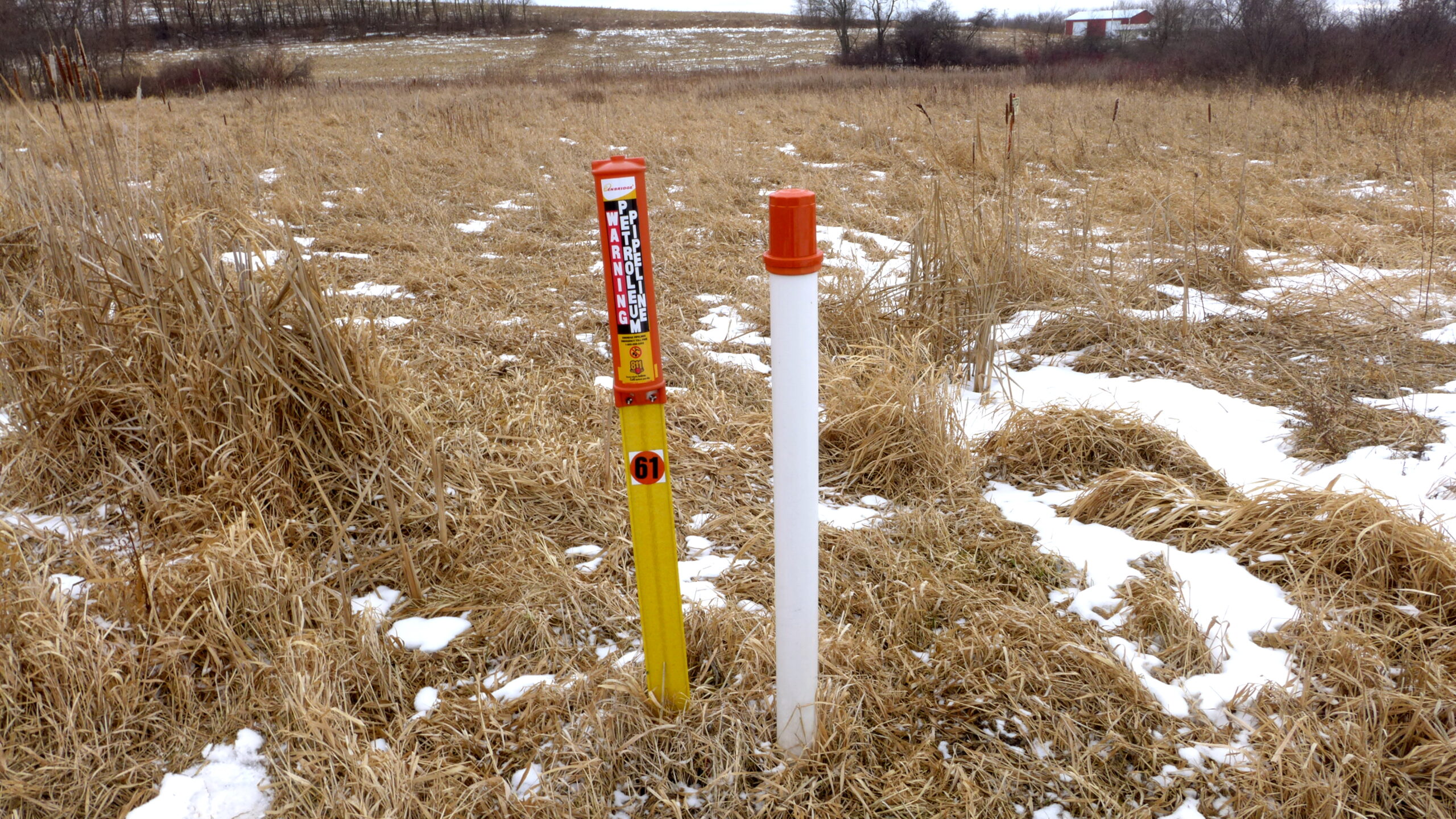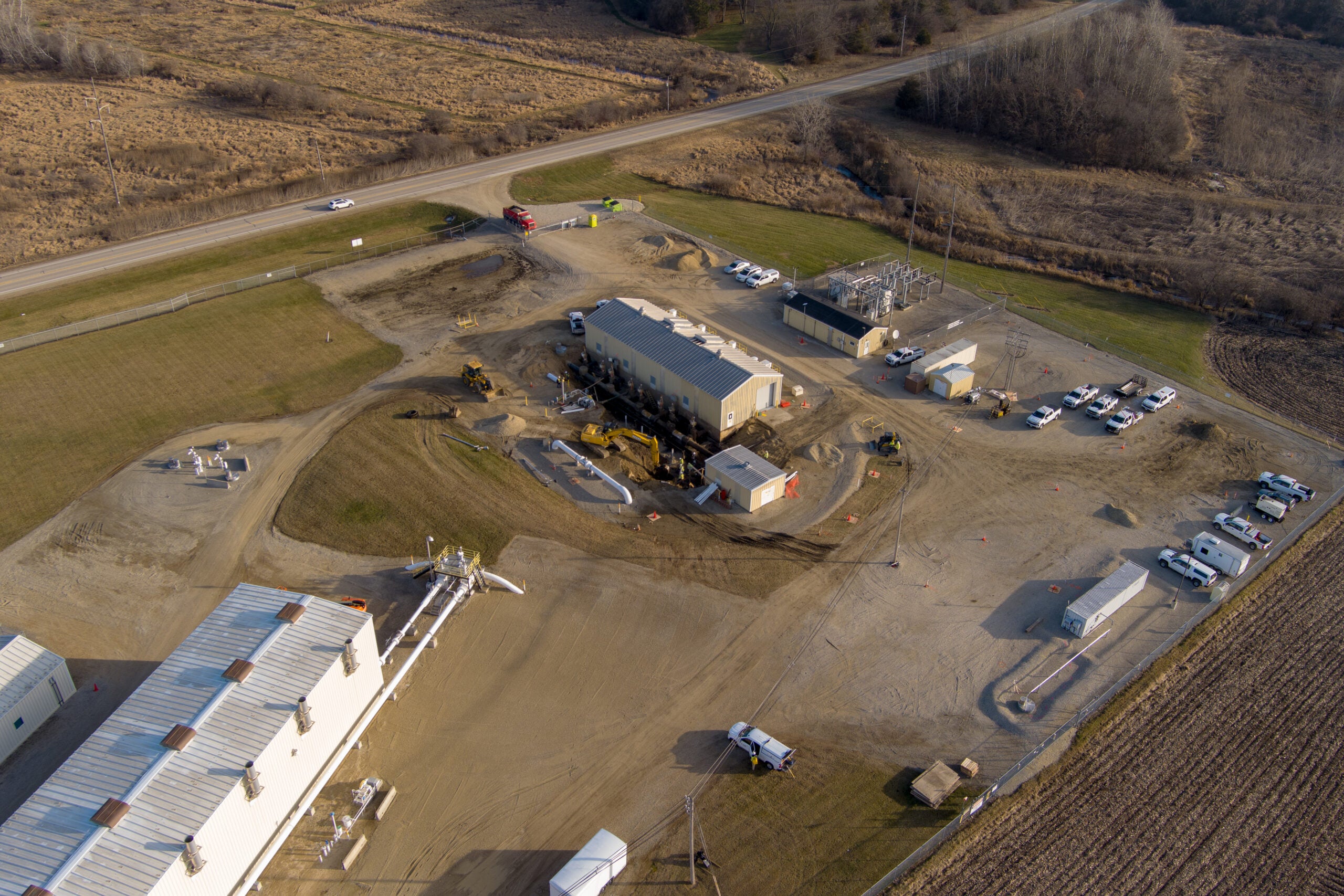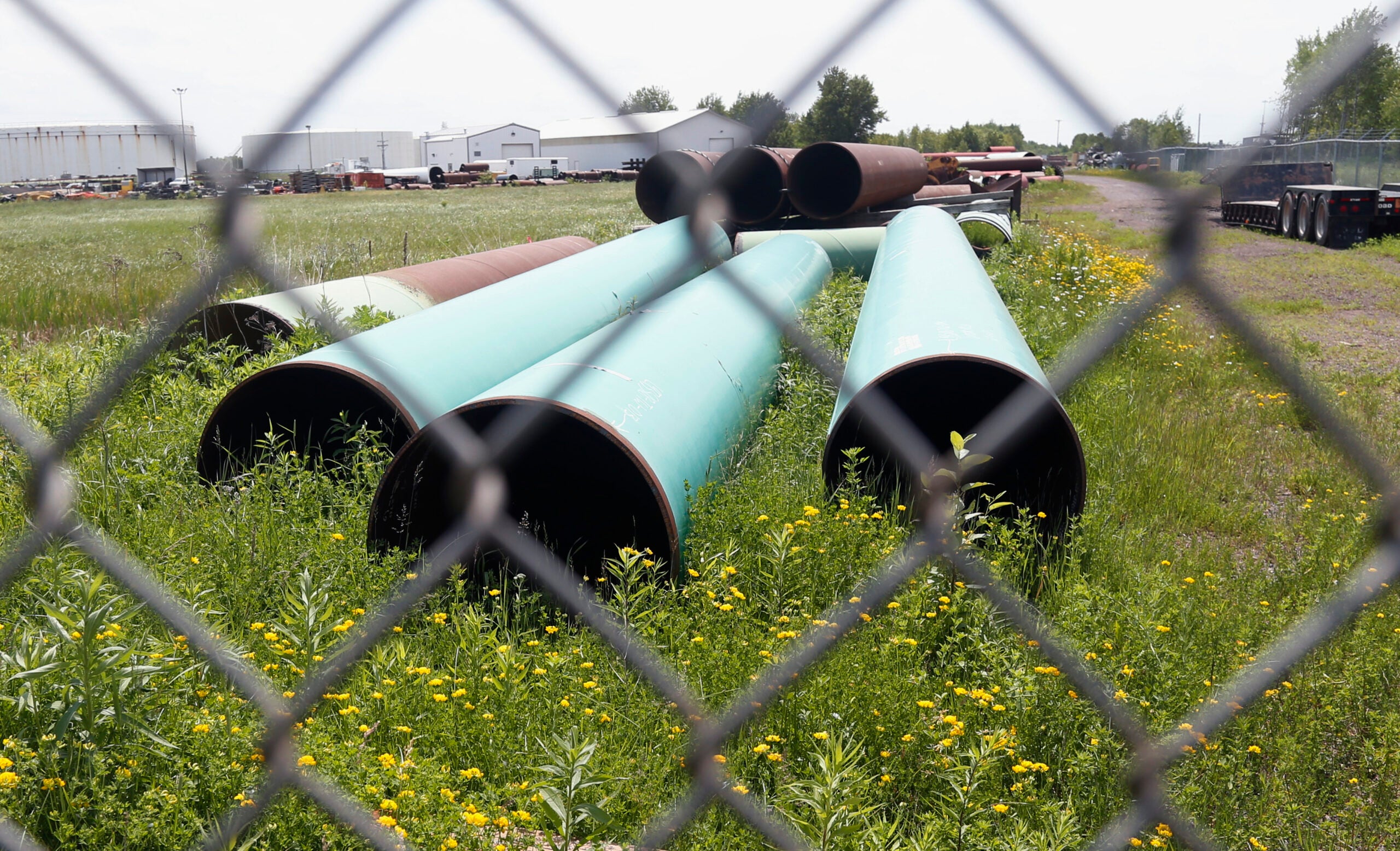Update: Dane County’s zoning committee has reportedly voted unanimously to postpone a decision on approving an Enbridge Energy Corp. pumping station.
A Dane County committee will meet on Tuesday evening to consider a permit for a pump station that’s part of an Enbridge Energy pipeline expansion — a proposal that has been met with heavy opposition from people concerned about the possibility of oil spills.
Enbridge is expanding its Line 61 oil pipeline that runs from Superior to the Illinois border. The Canadian firm has begun building eight out of nine pump stations along the route as part of its plan to send up to 1.2 million barrels per day across the state.
Stay informed on the latest news
Sign up for WPR’s email newsletter.
Peter Anderson, a spokesman for environmental group Madison 350, has voiced concerns about the project to Dane County’s zoning committee. Anderson said the company should provide insurance if they want the committee to grant a permit for construction.
Anderson said it’s especially important that the Maunesha River, which flows by where the pump station would be, has sufficient protection in case an oil spill occurs similar to one that happened in 2010 in Michigan. In that natural disaster, around 843,000 gallons of heavy crude spilled from an Enbridge pipeline into the Kalamazoo River, costing around $1.2 billion to clean up.
Dane County’s zoning committee, which has been reviewing the permit for the pump station, has postponed action several times since last fall after people raised concerns about the station’s impact on the environment. Committee Chairman Patrick Miles said the federal Pipeline Safety Act limits how they can address some of those concerns. He said requiring insurance may be one of the few options they can explore.
“There’s a concern raised by many that, if there’s to be a conditional use permit granted, there needs to be some assurance that if there’s an accident that there are resources available to cover the cost of cleanup of a potential spill,” said Miles.
Enbridge said it has up to $700 million in general liability insurance and access to up to $1 billion through the federal Oil Spill Liability Trust Fund. The Canadian firm has also agreed to provide a spill basin similar to those at its Superior terminal. There, two containment ponds prevent any spills into the Nemadji River, which empties into Lake Superior.
Enbridge Energy spokeswoman Becky Haase said the company has invested $4.4 billion over the past two years on inspections, new technologies, staff and training to improve pipeline safety since the Kalamazoo River spill. She said requiring additional insurance is unnecessary.
“In the unlikely event that something happens there, we’re going to clean it up — insurance or no insurance,” said Haase. “If something happens, we’re responsible and we foot the bill to clean it up.”
Wisconsin Department of Natural Resources Spills Coordinator Jason Lowery said the company has reported nine spills in the last 10 years.
“The vast majority of them haven’t resulted in any known documented long-term contamination,” he said. “They were cleaned up fairly quickly.”
The exception was a 2007 incident in which 200,000 gallons of oil were spilled in Rusk County, causing groundwater contamination, said Lowery. He said the company has taken steps to clean the site, and drinking water wells were not affected.
Lowery said spills are going to happen. Enbridge’s Haase said opponents of the project should recognize the number is small compared to the amount of oil they transport.
“It’s not even a handful of incidents that they can refer to, and we transport millions of barrels of oil every day,” said Haase.
Zoning and Land Regulation Committee Chairman Miles said the question of whether to require coverage from Enbridge — and, if so, what kind of coverage — will be on the agenda for Tuesday night’s meeting. Enbridge attorneys have argued federal law prevents this kind of local zoning restriction.
Wisconsin Public Radio, © Copyright 2025, Board of Regents of the University of Wisconsin System and Wisconsin Educational Communications Board.


